In Brazil and worldwide, football (soccer) is more than a game, it is about joy, hope, and celebration of our teams and players. Unfortunately, during games like the World Cup, we often get stuck in political borders that limit our ability to build connections across communities and differences. Similarly, our efforts to address the climate crisis are rooted in the same silos and borders that lead to advancing solutions rooted in fear, despair, and shame for what is not being done. With a nod to the game, as all eyes turn to Brazil these next two weeks, we introduce the Climate Cup of Solutions.
The Climate Cup of Solutions is a celebration of the abundance of wisdom from the frontlines. Guided by the insights of Taproot Earth fellows, partners, and community leaders who are advancing Global Climate Reparations in real terms, this living collection celebrates the imagination and leadership of those reframing the climate story around repair, solidarity, and shared power. Every solution reveals the creativity and courage of organizers reimagining systems and building pathways toward a world where we can all live, rest, and thrive in the places that we love.
In the World Cup when players take to the pitch to play the game, they represent their country with pride, just as you will learn from these leaders about the solutions from their own communities and countries. When the game is over, players exchange jerseys with each other showing that borders are not real. What is real is our human connection, our joy, and our love (for the game or for our place we call home). The Climate Cup of Solutions offers an opportunity for us to “share the jerseys” with each other and cross the borders to build solidarity and relationships to create a better world.
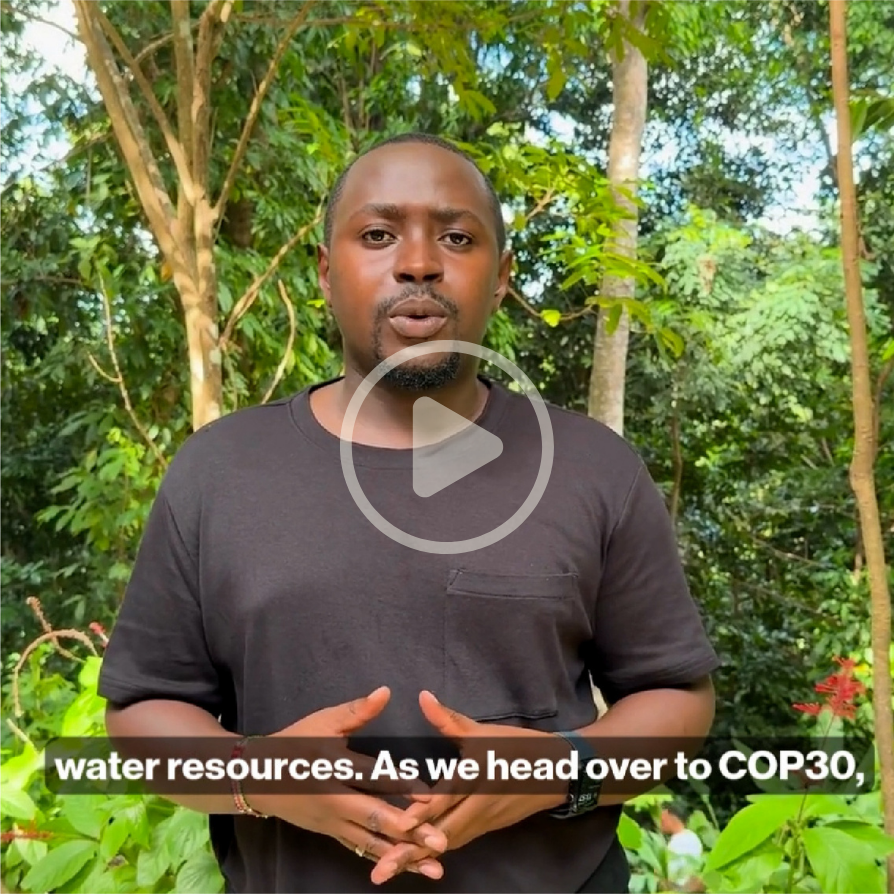
Kenya is home to over 56 million people, over 40 different tribes and languages, and is known as the cradle of humanity. Kenya also shares ecological boundaries with Uganda and Tanzania of Nam Lolwe (Lake Victoria), the source of the great River Nile.
Despite this abundance, Kenya is classified as a water-scarce nation, with below-normal rainfall now threatening food security and livelihoods across much of the country. In response, the Youth and Sustainable Water Keepers, a network of more than 500 young people, launched the Journey of Water campaign to trace rivers from their source to the sea. Along the way, they map pollution, measure water quality, and engage communities to safeguard shared resources. Their work models collective care for water, though investment in local water systems and youth-led monitoring remains vital.
Led by: Brian Omenyi, Youth & Sustainable Waterkeepers
The Nile is a vibrant bioregion that supports millions of lives and a wide variety of ecosystems. Its forests, farmland, wetlands, and deserts connect various countries, cities, and communities that share a common history and culture. Like many areas globally, the Nile bioregion faces the effects of climate change. Rising temperatures, water scarcity, soil degradation, and loss of biodiversity are significant challenges. These issues threaten food systems, traditional livelihoods, and community well-being.
Nile Journeys is a bioregional platform dedicated to fostering regeneration across the Nile Basin. Rooted in the belief that ecological renewal and social healing are inseparable, it connects communities along the river to co-create life-affirming actions. Through participatory learning spaces, hands-on restoration, and cultural remembrance, Nile Journeys nurtures ecological resilience, inclusive leadership, and intergenerational knowledge-sharing.
Represented by: Nahom Haile, Nile River Journeys
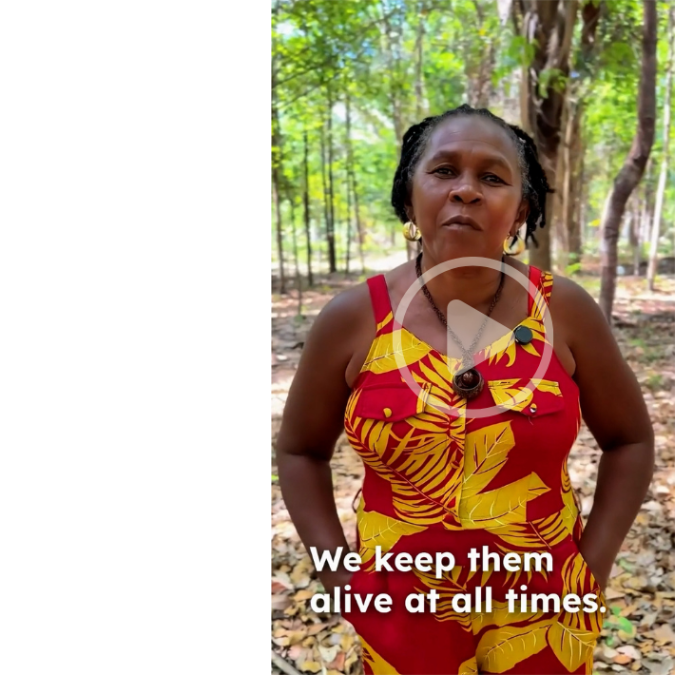
Brazil is home to over 213 million people and is the fifth largest country in the world. Nearly 60% of its land is forest and it holds 12% of the world’s freshwater. Despite this abundance, Brazil faces wildfires, floods, and deforestation that deepen land inequality. Millions of rural workers remain landless while agribusiness clears vast areas of the Amazon for profit.
The Landless Workers Movement (MST) organizes families to occupy idle estates, build cooperatives, and demand access to credit, education, and healthcare. Land justice in Brazil is sustained by Black and Indigenous women, including Quilombolo communities founded by Black leaders who escaped slavery to form self-determined, collectively governed villages. These communities face some of the harshest impacts of the climate crisis and corporate expansion. As Dona Hildecy says, “Cutting down the palm trees is a wound to us. Whoever cuts a tree cuts a part of our history.”
Led by: Dona Hildecy, Quilombolo Leader and Land Protector

The forest ecosystems of Brazil include not only the Amazon, but also another critical biome known as the Atlantic Forest. This is home to unique species, medicines, and water that provides life and roots of Indigenous wisdom and knowledge.
Continued efforts to mine, drill, and extract from the Atlantic Forest threaten the lives of so many Indigenous peoples who call this biome, home. Often, the defense of the land is led and held by the women who not only defend the land, but also provide life-saving medicine and care to their communities and preserve the deep history and wisdom of their people and relationship to the Earth.
Led by: Nadia Akawa, Indigenous Elder of the Atlantic Forest Biome, Bahia
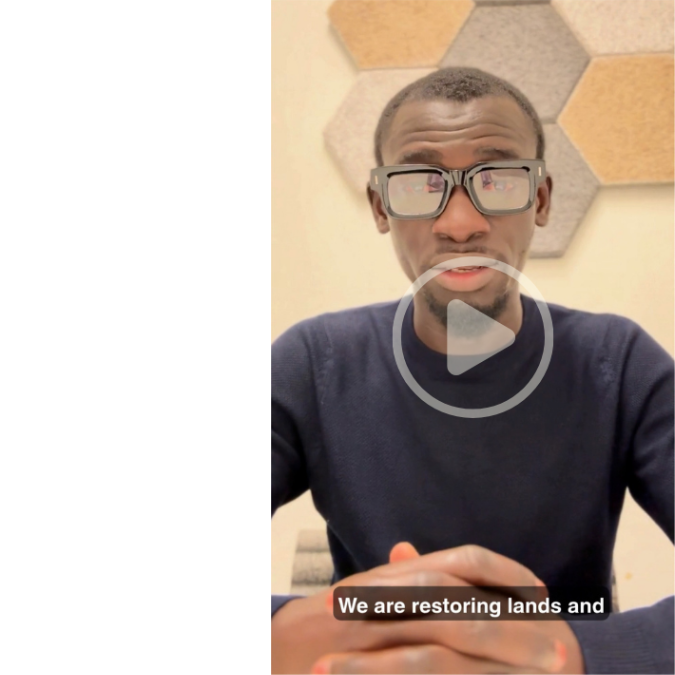
The Gambia’s forests have been stripped by illegal logging and land degradation, turning once-thriving carbon sinks into sources of emissions. Young people are responding through projects like Grove of Gambia and Sogo Green Schools, planting and caring for trees that restore ecosystems and livelihoods.
Their work renews biodiversity, stabilizes soil, and inspires national pride. Sustained community support and protections against foreign exploitation are needed to ensure these forests continue to heal and thrive.
Led by: Dawda Cham, Youth and Forest Protectors
.png)
Cape Verde is home to over 500,000 people and is a nation of ten volcanic islands off the coast of West Africa. Cape Verde is often home to the start of the Atlantic hurricane seasons, and is experiencing more devastating storms each year due to the climate crisis. Known as the last stop where Black leaders resisted and challenged the Portuguese slave trade and later home to Black liberation movements globally Cape Verde is leading the way to show how to create renewable energy justly.
Nearly one fifth of Cape Verde’s electricity already comes from wind, a major achievement for an island nation still dependent on imported fuels. At CERMI, students and teachers repurpose oil drums and plastics to create small-scale solar and wind systems that power homes and schools. The program builds practical skills for a green workforce across Africa and the Global South. Expanding training and access to equipment will help Cape Verde reach its goal of 50 percent renewables by 2030.
Led by: Ricardo Gomes, CERMI

Over 50 million people call Uganda home. The East African nation holds abundant water sources, including wetlands, the White Nile, and major lakes like Victoria. Since 1994, almost half of its wetlands have been lost, threatening natural flood protection and water supply. This loss is driven by biomass production, oil and gas drilling, and pipeline development. Most schools still rely on firewood for cooking, harming youth health.
The Tard Foundation’s VASH Green Schools Project provides solar panels and clean cooking stoves that reduce deforestation and improve air quality. Seventy-five schools and over 20,000 students now benefit from cleaner, brighter learning environments. Sustained funding and expansion could help schools across Africa access safe energy and model climate leadership.
Led by: Vanessa Nakate, Tard Foundation
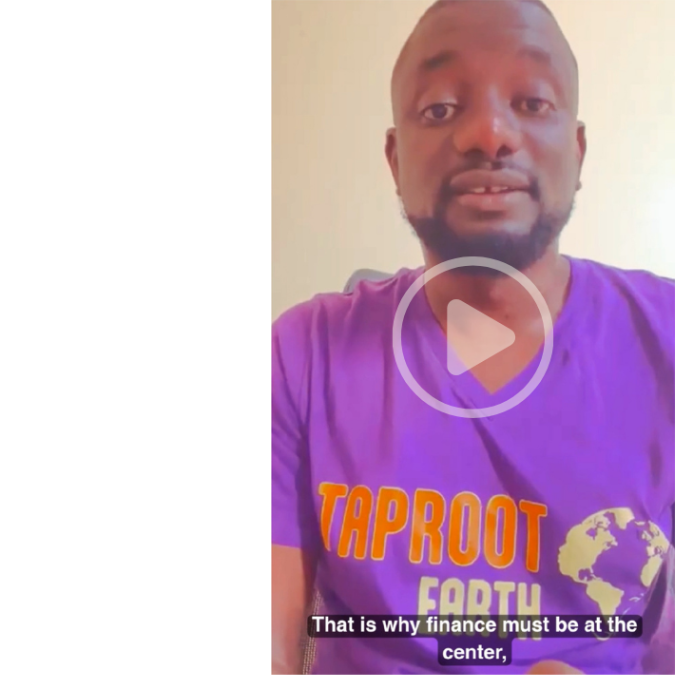
Senegal faces a growing tension between foreign investment and community wellbeing as droughts and floods intensify. Offshore oil projects and carbon trading schemes export profits while leaving local people behind.
The African Climate Action Network mobilizes citizens to demand fair climate finance and accountability from global leaders. Their annual campaigns unite thousands to insist that promised funds flow directly to communities. Real climate justice will come when economic power serves the people first.
Led by: Muhammad Lamin, African Climate Action Network

The Democratic Republic of Congo is home to the Congo Basin, the world’s second-largest rainforest and largest carbon sink, holding more than 70 percent of the rare minerals that power modern technology. Yet profits from extraction flow overseas while local communities face displacement, conflict, and environmental destruction.
Grassroots and citizen-led movements like LUCHA (Lutte pour le Changement) are organizing for transparent governance, debt relief, and Indigenous stewardship of the Basin. Their vision for Global Climate Reparations calls for a shift from extraction to shared prosperity rooted in democracy, collective safety and ecological balance.
Led by: Micheline Mwakendi, LUCHA (Lutte pour le Changement)

Over 65 percent of Zambia’s population is under 25, and drought has deepened unemployment and food insecurity.
The Young Emerging Farmers Initiative trains young people to practice agroecology, restore soil, and build green enterprises that feed families and create opportunity. More than 20 youth-led farms have generated 1,000 jobs and revitalized thousands of hectares of land. Ongoing support can help scale this model across the continent and build food systems rooted in care and dignity.
Led by: Richard Kachungu, Young Emerging Farmers Initiative (YEFI)
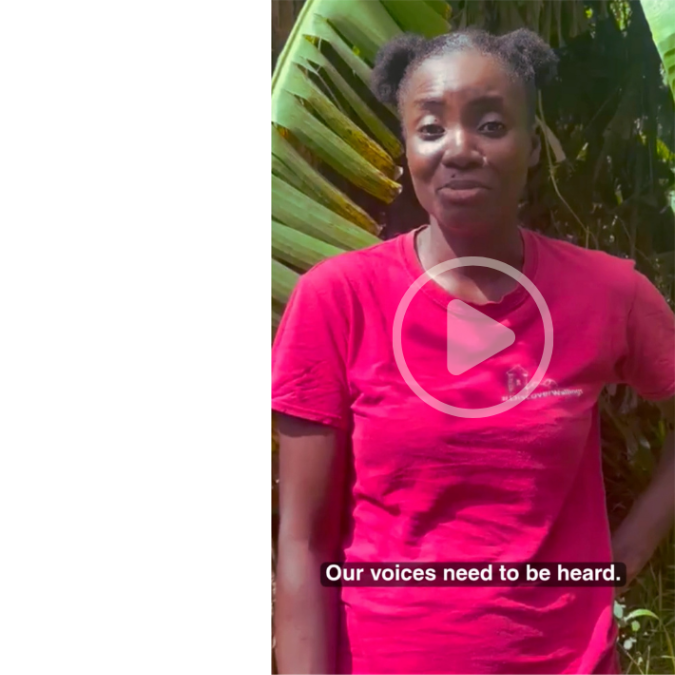
Antigua and Barbuda could see rainfall decline by up to 50 percent by 2090, making water conservation and land protection inseparable. On Barbuda, communal land ownership was repealed in 2018, challenging generations of shared stewardship.
The Wallings Nature Reserve protects the country’s last rainforest and promotes biodiversity, education, and local leadership. Defending this model of collective ownership is key to safeguarding both democracy and ecological resilience.
Led by: Refica Atwood and Tahambay Smith, Wallings Nature Reserve